The Best and Worst Anime of Fall 2023
by The Anime News Network Editorial Team,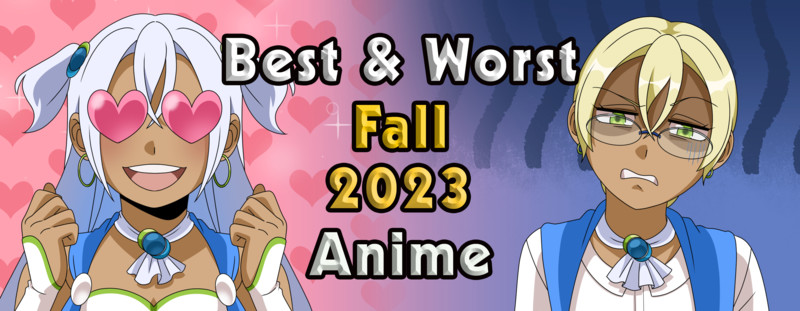
Anime viewers had an array of options this season, from the critical favorite Frieren: Beyond Journey's End to the bombastic The Eminence in Shadow 2nd Season. Jujutsu Kaisen Season Two continued amid concerns about its studio's working conditions while the Spy×Family, The Ancient Magus' Bride Season, and The Rising of The Shield Hero sequels hoped to bring back its faithful fans.
Below is the list of the editorial team's favorite anime series from this season, as well as our biggest disappointments.
Note: the commentary below may include spoilers.
Nicholas Dupree
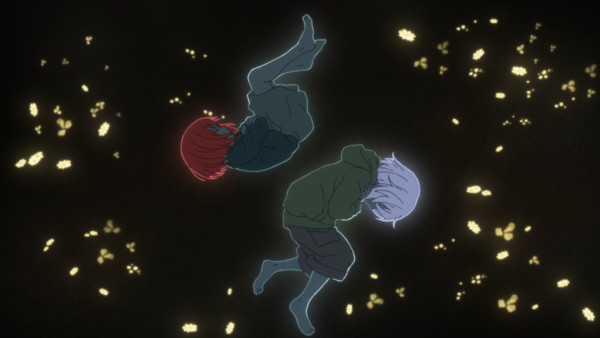
Best: The Ancient Magus' Bride Season 2 Part 2
There were a ton of good shows this season. Too many, honestly, to the point where I had to make some serious cuts to pare down a shortlist for this. There were so many good series that were good in different ways at different things that the amount of daylight between this pick and my runner-up came down to an honest-to-god coin flip. So, be it through luck or magic, this second half of AMB's long-awaited continuation takes the top prize.
It certainly earned it. While the first half of this season was a slow burn, cour two ignites itself into a blazing inferno, capitalizing on all the meticulous character—and world-building in part one to craft one hell of a crescendo. Whatever the College arc loses by centering itself on the world of human magic and its comparatively rigid structure is more than compensated for by exploring the equally human structures and cruelties that have grown alongside the world of sorcery. There are entire episodes that are just characters talking, walking, and explaining their damage to one another, and it makes for some of the most engaging television of the year. Themes of legacy, identity, and agency swirl together in a shadowy whirlpool, dragging each of its teen characters into the muck and seeing how they face its grip. Some struggle against the current, others abandon themselves to its pull, but in the end, a scarce and precious few manage to cling together and help one another climb out of the vicious human cycle.
Within that struggle, we see Chise inhabit a new role, offering a helping hand and fierce protection to her new friends and using everything she learned about herself in the first season. It's not just rewarding for long-time viewers but a heartwarming example of how the love shown to her in her darkest hour has blossomed to help others. After a lifetime of hurt, Chise has finally climbed out of the pit she was in at the start of this story, and without a moment's hesitation, she reaches back into that abyss to begin pulling others out. It's touching, inspiring, and altogether a wonderfully satisfying direction for this character and her story. If you missed the first season or haven't had time to watch this sequel, you owe it to yourself to check it out.
Runner-up: The 100 Girlfriends Who Really, Really, Really, Really, Really Love You
Guys, gals, and non-binary pals, we stand now upon the dawn of a revolution. For too long, the harem genre has wallowed in complacency, content to sleep where it lands and follow the traditions established decades ago by its forebears. For decades, we have been trapped by the manufactured conflict of deciding a "best girl" or arguing about who should "win" in any given show. That idea of hierarchy, of competition, has long stained our understanding of love, seeping into the language we use to describe it. We have bought into the constructed and manufactured narrative of those who would have us fighting among ourselves rather than uniting. Believe me, comrades, when I tell you whether you prefer tsunderes or kuuderes, onee-sans or imoutos, childhood friends or mysterious transfer students, you all have more in common with one another than with those trying to pit you against each other. So let us follow the example of 100 Girlfriends and unite to form a family powerful enough to change the harem landscape for the rest of time! Break free from your shackles! Embrace a new, better future that we can build together!
Also, the show is hilarious and has some genuinely interesting and healthy messages about unconditional love, both romantic and platonic. While it's definitely out there at times and not to be taken too seriously, it's easily one of the most consistently entertaining and clever shows this season. Altogether, it is a bang-on adaptation that does the source material justice.
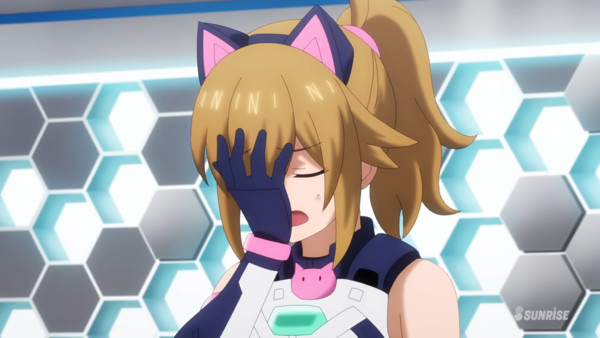
Picking a "worst" was hard at first. This season has been so stacked there wasn't time to mess around with anything that didn't immediately grab my interest. "Luckily," this soulless little advertisement for an already-doomed "Metaverse" project was just bite-sized enough to fit into my viewing schedule, yet simultaneously so hollow and insulting that it still felt like it wasted my precious time.
The original Gundam Build Fighters was what got me into Gundam to begin with. While it was a shameless advertisement for the larger franchise and all the plastic merch attached to it, the show itself was so vibrant and joyous that it never felt like I was being sold something. It's a series I've only grown to love more as I continued into the main franchise and slowly realized how much of it was a cheeky, ecstatic love letter to all things Gundam. Meanwhile, Metaverse is so vapid that it can't even fill an hour with its characters or story. Instead, we get a personality-deficient self-insert protagonist whose only job is to spout cliché lines about never giving up while watching dead-eyed facsimiles of previous Build characters who have barely animated fights.
That disastrous attempt at fanservice makes this thing miserable to sit through if you're a fan of any previous entries. All your favorites are wheeled out as crude animatronics of their original selves, regardless of any established continuity or the fact that several of these characters really shouldn't still be teenagers. They each have new, uglier remixes of their original gunpla, team up with our blank-slate hero for no real reason, and then stick around just long enough to tell him how cool and special he is. It's the Gundam version of Ready Player One, but exclusively for this sub-franchise. Much as I love the early Build Fighters series, if this is what this part of the IP has been reduced to, I can only hope the inevitable failure of Bandai Namco's big dumb metaverse project can also kill this series along the way.
Richard Eisenbeis
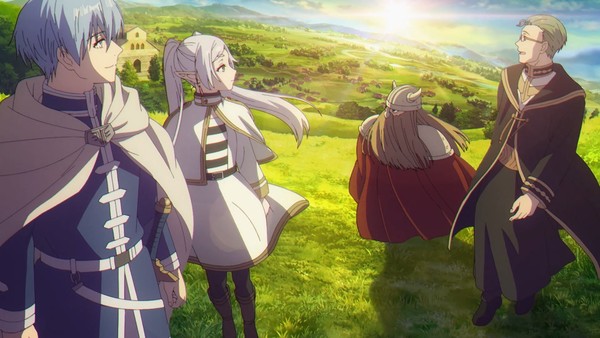
Best: Frieren: Beyond Journey's End
To say that Frieren: Beyond Journey's End is the best anime of the season sells it short. (Best of the year or best of the decade would seem more apt). This is one of those anime that does have it all. Comedy? Constant and lighthearted. (There's a reason that the image of Frieren being chomped on by a Mimic is synonymous with this series.) Action? Stark's fight against the dragon and Fern's against Lugner is action-filled and incredibly well-animated. Dramatic moments? The obvious pick is Frieren facing off against Aura at the climax of the first part of the series. It's more a conversation than a fight—and it's still one of the most triumphant moments I've seen in any storytelling medium.
But all that's just the surface of what Frieren: Beyond Journey's End has to offer. At its core, this is a show that uses an immortal elf as a tool to explore the nuances of our mortal existence. Every episode is another moment where Frieren comes to understand something about her humanity—often by passing on a lesson she hadn't realized she had learned to the new generation. It's a story about regret, about making the most of the time we have and learning that those we treasure continue to affect us long after they are gone.
But beyond that, it's a story that teaches that it's never too late to change—never too late to do better. Whatever holds you back—be it your past, your regrets, or even your own ignorance—can be overcome. It may take time and hard work. You may mess up as much as you succeed, but you can still grow, no matter whether you're ten years old or 1000. It's a fantastic show from top to bottom and will be viewed as a classic for years to come.
Runner Up: Pluto
Pluto would be an easy pick for the best anime in any other season. On one hand, it's based on a story by the man who, for all rights and purposes, created anime as we think of it today. On the other hand, the man behind the psychological thriller Monster has re-imagined it. What's born out of this is a science fiction story that Isaac Asimov would be proud of.
Pluto takes the Astro Boy story, "The Greatest Robot on Earth," and turns it into a hard-boiled crime drama. Rather than being about the seven strongest robots in the world fighting it out, it's explored as a mystery—one that grows in complexity as each robot (along with their creator) is murdered. One of these robots is at the center of the story—but it's not Astro Boy. Instead, the story focuses on Gesicht, a robot detective.
The story is a great mystery and uses Gesicht and the other robots to explore various facets of humanity. One major exploration of the anime is prejudice—both the overt and more insidious kind—and how it affects both the victim and the assailant. Another is about the evolution of AI, what it would mean for an AI to be a "perfect" one, and what would be needed to make it so. Yet another is the Gulf War—from the politics surrounding it to the psychological effects of those sent to kill in an ultimately unjust war.
Simply put, Pluto is an instant classic that should be counted among the greatest sci-fi epics of our time.
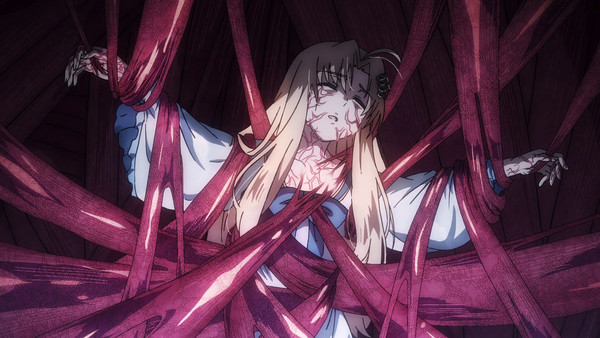
As it turns out, I watched a fair amount of mid-tier anime this season—ones that I was already invested in because they were sequels (and so I kept watching out of habit) or ones that had just enough of something I enjoyed to keep me watching. However, as none of them were outright terrible, I was left with a question: which among these was the worst? Eventually, one settled at the bottom of the barrel: The Rising of the Shield Hero Season 3.
The Rising of the Shield Hero Season 3 is one of those anime where it's not the story itself that is the problem but rather the way it's being told, which is something shared by the previous season. Yet, while that season of Shield Hero had a rocky start (so rocky that it was my pick for worst of that season), it did get dramatically better in the back half—so much so that I was cautiously optimistic for this season. However, that hope was misplaced.
If I were to sum up The Rising of the Shield Hero Season 3 in a single word, it would be "boring." Much of the season is tying up various loose ends and preparing for the looming threat of the Phoenix. Many new characters are introduced and quickly meld into the background as soon as their moment to shine is over. Even when the stakes are supposedly life and death, there's very little in the way of tension—as we have had little time to get to know these characters or come to care about them. Even the explorations into important characters' motivations, pasts, and psyches (namely the other heroes) feel glossed over. It all feels so painfully surface-level—like reading a Wikipedia article more than watching the show. And it's a shame. Some truly interesting things could have been done with this story… but sadly, they weren't.
Rebecca Silverman
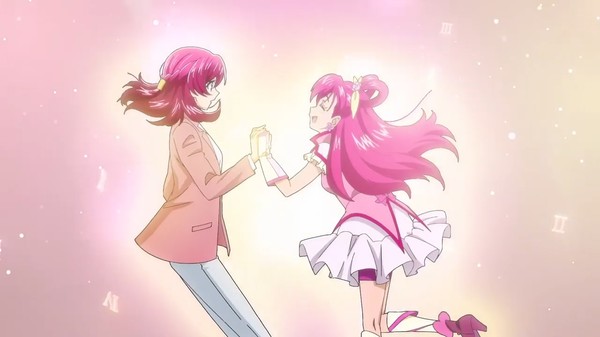
This was a tough season to narrow down for me. Between the character work of Overtake!, the continuing strengths of Soaring Sky! Pretty Cure, and the heartwarming quality of The Yuzuki Family’s Four Sons, I enjoyed most of what I ended up following. Ultimately, I decided not to use The Apothecary Diaries as one of my picks because it's ongoing, but it really is a stellar adaptation of equally good source material, so if it keeps that quality up, I feel like it'll be a shoo-in next season. But for me, the series that resonated the most in Fall of 2023 would have to be:
Best: Power of Hope: Precure Full Bloom
I'll admit that neither Yes! Precure 5 nor its sequel are my favorite seasons of Pretty Cure, so I wasn't thrilled that they were the ones getting an adult-focused sequel. It made sense historically – Yes! Precure 5 was the first of the franchise to feature a team of girls beyond the duo model of Futari wa Pretty Cure and Futari wa Pretty Cure Splash Star. It's also one of the series to have an easily incorporated romantic subplot. However, I was excited to see how a children's franchise would update to appeal to an audience that grew up with it, and the result has blown me away. Power of Hope: Precure Full Bloom takes the underlying themes of a classic magical girl show and actively works to show why they aren't just cute stories that we tell to children. We live in a cynical world where things like "hope" and "dreams" are relegated to children's media, the tacit understanding being that we're supposed to outgrow such silly things and focus on the so-called real world. That's a trap that the women of this show have all fallen into when the story opens. Yes, most of them are actively pursuing what their dreams were in their original stories, but the bloom is off the rose for many of them. Nozomi can't save all her students, Rin and urara aren't unqualified stars in their creative fields, Karen and Komachi are working themselves to the bone, and Kurumi is learning first-hand that not all bosses are like Coco and Natts. Meanwhile, the Splash Star girls have grown up to confront social expectations of what womanhood is supposed to look like, and even Saki has lost some of her go-get-'em shine. The world is beating them down, slowly but surely.
That's when a mysterious dark angel named Bell shows up with her Shadows, monsters born from the darkness in human hearts. Bell's appearance forces the women to confront their dark hearts (which ties in particularly well with Yes! Precure 5's original villains in Nightmare) and to recapture the hope they felt as teenagers. Their transformations are equal parts triumphant and ominous because, as Bell says, you can't turn back time. But on an emotional level, the story is about reclaiming the hope and joy you felt when you were younger. Sure, life may not work out as planned, but that doesn't mean it's hopeless. You don't have to follow just one path; being an adult doesn't equal giving up on your dreams. The story's use of the time flowers is a reminder that you can't do things exactly as you did at fourteen, and the environmental message, although heavy-handed at times, is a plea against complacency and inaction. But at its heart, this show is about reclaiming your optimism and drive to stand up for what you believe in. It's not easy. It's not always safe. But as Nozomi shows us, it's always worth at least trying. That was a message I badly needed back when I first discovered Sailor Moon, and it's one that I think we sometimes forget. Power of Hope: Precure Full Bloom not only cements my love of magical girl stories, but it reminds me why they helped me in the first place. Even if this drops the ball in its last episode (which hasn't aired as of this writing), there's a special place for it in my heart.
Runner-up: My New Boss Is Goofy
Slice-of-life is always very hit or miss for me, so I was trepiduous going into this series. But I was sold when Shirosaki accidentally bought Midol for Momose and proved his heart of gold and haplessness, and the story keeps improving from there. There's such a warmth to this silly story that it swings effortlessly between being laugh-out-loud funny and teary, sometimes within the same episode. Every episode that focuses on Hakuto, the tsundere kitten, is a combination of sweet and edge-of-tears as Hakuto tries desperately not to show how much he loves his new life with Shirosaki (and later Momose as well). The entire thing proves how far just a little kindness goes. The details are also stellar – the focus may always be on the two leads, but care is taken to show us the reactions of random bystanders and passers-by who see or hear them, reinforcing that we viewers aren't the only ones reacting with a smile. My only issue is that "goofy" isn't the right word to describe Shirosaki; he's more hapless or flaky. But whatever you call him, this is just a heartwarmer of a show, and if you're having a bad day, I'd highly recommend it.
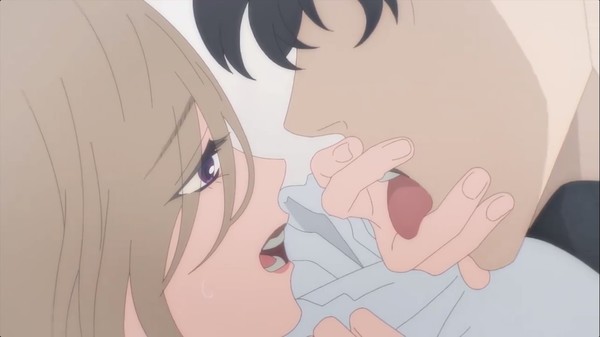
I'm actually impressed that this anime adaptation managed to make the source manga look worse. That's no mean feat, given the premise that fifteen-year-old Isaku's crush and bodyguard ends up enrolling in high school with her (despite being twenty-six), and their feelings turn mutual. Oh, and he raised her from toddlerhood just to make it extra uncomfortable. I have no issue with age gap as a romance genre, and I've seen it done very well. But this story? "Very well" is not the term for it. The relationship between the two is weird and unequal no matter how you try to balance it: she's his boss' granddaughter, and he's much older than her. And if that wasn't enough (and again, it doesn't have to be a deal breaker in fiction), the show looks hideous. Animation consistently looks like it is missing frames, Hatsuharu's art does not get adapted well (and it had some issues to begin with, like facial expressions), and the brown color scheme with occasional splashes of pink doesn't do the visuals any favors. Let's hope the upcoming season does shoujo adaptations better.
James Beckett
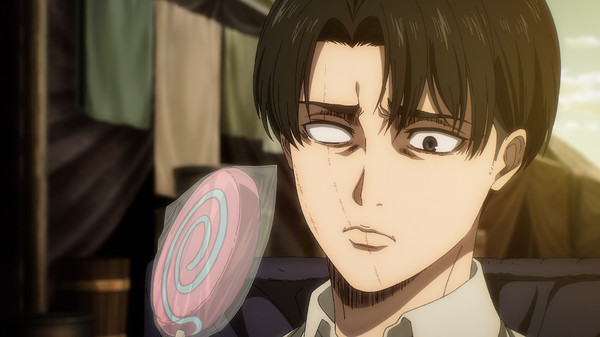
Best: Attack on Titan Final Season THE FINAL CHAPTERS (Episode 2)
Is it cheating to give my top spot for the season to a show that technically only aired a single episode this fall? Maybe. When that one episode has the scope and scale of a full feature-length film, though, it's probably worth paying attention to, and doubly so when it ends up being the grand conclusion of a series that has long stood as one of the (ahem) titans of the entire anime industry.
Look, I've watched a lot of anime over the last few months, and as most anyone will tell you, a lot of this season's anime has been uncommonly good. Between shows like Frieren, Scott Pilgrim Takes Off, the 100 Girlfriends (etc.), and other shows that we'll get to in just a moment, it probably should have been incredibly difficult to figure out what the best anime of the whole season was. Except it wasn't. Not even a little bit. Regardless of whatever controversy it might have held in the past—or even still—and regardless of the mixed feelings I have about the studio responsible for shepherding Attack on Titan through its Final Season(s), I can confidently say that nothing else this fall matched the sheer, soul-shattering spectacle that this finale-of- finales managed to cram into its somehow breezy 90-minute runtime. If nothing else, the ending of AoT made me feel more than any other fall series, and that's worth something in and of itself.
It isn't just a matter of emotion, though. The manga-reading naysayers may have their hills to die on still, but I will nevertheless contend that Attack on Titan concluded in the only way it ever really could have and that the messy, ambiguous, heartbreaking, infuriating, and haunting road that it took Eren and the rest of the Scouts down for this final battle is as satisfying an ending as I have seen for a series that possessed so much ambition. Back in 2013, Attack on Titan blew the doors off the entire anime industry and ushered in a new generation of fans with its bold, shocking storytelling and brilliant action. Now, a decade later, it has shown the rest of the world exactly how to bring such a monumental story to a close.
Runner-up: Undead Unluck
This is one of those occasions where there are honestly, like, five equally good shows that I could have chosen for my runner-up this fall, but I specifically want to highlight Undead Unluck because I'm worried that I'm the only damned person on the planet that's taken time to sneak into the Hulu Hoosegow to watch it in the first place. I demand justice for Undead Andy and his Adorkable Girlfriend, Fuko, and I won't stop until I get it.
Some of you out there might have understandably been turned off by crass jokes and generally juvenile sensibilities of the first episode of Undead Unluck, and you might now find yourselves asking, "Really? The show about the giant-schlonged naked guy who propels himself through the air via the geysers of gushing blood produced by his constantly exploding limbs to take advantage of a sad introvert girl's ability to manifest supernatural disasters of epic proportions upon anyone who touches enough of her bare skin for too long? That's one of the best shows of the season?"
"Yes". The answer to that question is "Yes." To be more specific, the answer would be "Hell yes, with a side order of Abso-freakin'-lutely, and a few packets of 'You're Damn Skippy!' sauce on the side for good measure." Now, to be clear, I'm not saying that David Studio's adaptation of Yoshifumi Tozuka's gleefully absurd manga isn't stupid, or insane, or often found beating the line that divides good taste and bad to death with a giant stick. I'm just saying that the show is so fun that none of that matters much. It features an ever-expanding cast of delightful characters, some of the most genuinely compelling world-building I've seen in a hot minute, and a pair of heroes I cannot help but root for. Would you believe me if I told you that the romance between the two is honestly pretty sweet? It's true. Undead Unluck has it all. I can only hope that my sober, professional analysis of its strengths is enough to convince fence-sitters to brave the wastes of the Streaming Wars and venture into Hulu's Anime No-Man's Land to check it out for themselves.
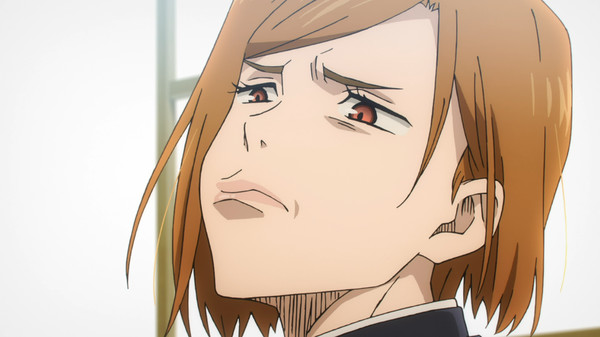
Look, I promise, I planned on dedicating some of my time to binging a truly unwatchable trash fire like A Girl and Her Guard Dog or The Kingdoms of Ruin to round out this list, but then I got COVID. The last thing I wanted was to give myself even more brain damage than I was already suffering before I recovered enough to put this article together. So, once again, consider this a "Least Good Thing That I Managed to Watch More Than a Handful of Episodes For" entry.
And that's the thing, too: Jujutsu Kaisen's second season has been mostly good, at least in its best episodes. The problem, for me, though, is that this Shibuya Incident Arc has been going on for months, at this point, despite only covering a little over three hours of in-story time and the handful of genuinely standout episodes that we've gotten out of it have been sandwiched in between some inconsistent material. It's made what could have been an incredibly tight and focused storyline devolve into a meandering, chaotic, and seemingly endless flood of nonsense action beats. You can only gorge yourself on so many fights between characters that you only kind-of care about before you start to get a little queasy. Still, Jujutsu Kaisen keeps piling on the fight scenes and character deaths no matter how many times I try to tell it that I've had quite enough already, thank you.
Don't even get me started on what they did to Nobara. If nothing else, the biggest flaw with the Shibuya Arc is that it took so much of the potential that came out of that incredible first season and sacrificed it on the altar of shock value and empty spectacle. I got ten times more out of the Flashback Arc from the beginning of the season, and that was barely five episodes long. I don't hate this season of Jujutsu Kaisen by any means, but it has gone a long way toward making feel indifferent about the franchise as a whole, which is almost just as bad.
Caitlin Moore
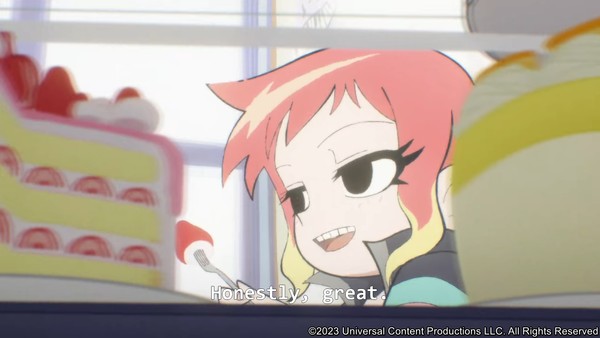
Best: Scott Pilgrim Takes Off
It's a good thing that I have a rule against selecting still-running series for my "Best of" lists; otherwise, Frieren and Apothecary Diaries would easily dominate every list. Since I'm making myself pick from the pool of series that have already completed – or, at the very least, are taking a break for a season – there are fewer no-contest selections. Well, except for one: Scott Pilgrim Takes Off, which I knew I would love and yet was still somehow a completely unexpected treat.
It would have been so easy for Bryan Lee O'Malley and Science SARU to give us just a straightforward, well-animated adaptation of the comics and ride the nostalgia wave. Most fans, myself included, would have been perfectly happy to see the comic characters in motion and sound, in a less time-compressed format than the movie, which was charming but didn't have time to develop the story and characters fully. But "straightforward" is antithetical to Science SARU's modus operandi, and BLOM is a much older and more mature person than he was when he first wrote Scott Pilgrim. Much like how the original comic was personal to the 00s' version of himself, Scott Pilgrim Takes Off veers in a wildly different direction from the end of the first episode into something personal to who he is now. What was once a coming-of-age story for two commitment-phobic twentysomethings is now a meditation on love found and lost, how people will both fight to save it and flee from it and how it's all worth it in the end. It does this all with clever writing and dialogue, stunning animation that puts equal love into character acting and big action setpieces, and perfectly selected needle drops. Scott Pilgrim Takes Off may not have been what I expected, but it was exactly what I needed.
Runner-up: The Yuzuki Family’s Four Sons
Whenever a joseimuke series gets adapted with middling-to-bad animation (i.e. almost every time a joseimuke series gets adapted at all), I hear people making excuses that animation doesn't really matter in something that's driven primarily by character interaction and introspection. As long as everything's on model, we can go home happy, right? I disagree! Animation may not be the end-all, be-all, but strong direction can make a huge difference in whether a long dialogue scene stays engaging all throughout or if I find myself zoning out midway through. Thank god Mitsuru Hongō pulled out all the stops for The Yuzuki Family’s Four Sons, a slice-of-life series about four brothers navigating life without their parents.
Coming from a big family with both wide and narrow gaps between sibling ages – my oldest brother and youngest sister are 22 years apart, and I myself am a twin – a lot of the dynamics explored throughout the series are familiar to me, like the rivalry between Minato and Mikoto or the parental role Hayato takes on, even before their parents pass away, and he's forced to essentially become a single father to his three brothers. The series as a whole is much, uh, gentler than my own family – there aren't any fistfights between the siblings, for one – but it's familiar all the same. Each episode explores their relationships, both with each other and their friends, and how their grief over their parents echoes through their lives. It steadfastly refuses to fall into lazy tropes, instead examining and sidestepping them, like Gakuto being a little old man at six years old and Minato's relationship with his best friend, the tomboyish Uta.
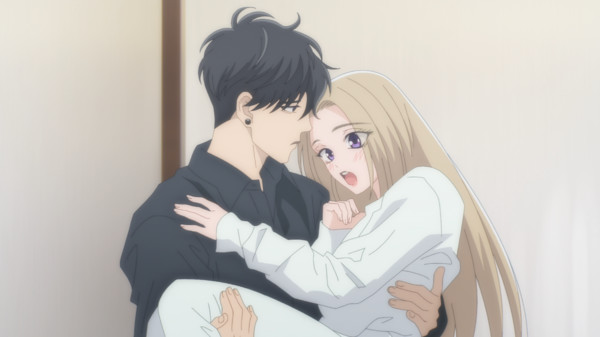
To be honest, there was never any chance that I'd like A Girl and Her Guard Dog. From the get-go, I find its most basic premise repugnant: a pseudo-incest love story where a teenage girl falls in love with her adult guardian, and in return, a fully grown man begins to see the child he raised as a viable romantic prospect. It's not a moral judgment against people who like it, and I find accusations of pedophilia in these cases overblown because, clearly, it's meant to indulge a fantasy. I just find it yucky.
But that's totally on me, and even if I were totally on board with the story, this wouldn't be a good series. Keiya and Isaku are utterly chemistry-free, and while Isaku is less passive than I would have expected of her, she's utterly clueless about Keiya's feelings. Keiya, meanwhile, is an utter creep, protective to the point of actively scaring away boys who try to talk to her (always justified in-universe, of course), and for an adult man who has, in fact, had sex, he's even worse at flirting than the average for a male lead in anime. I kept watching week to week for the sheer spectacle of watching the dull beige animation melt further and further, and I was richly rewarded as it went from a few awkward moments here and there to characters being off-model more often than they were on, bringing a boring-bad series finally to the hallowed realm of funny-bad.
Christopher Farris
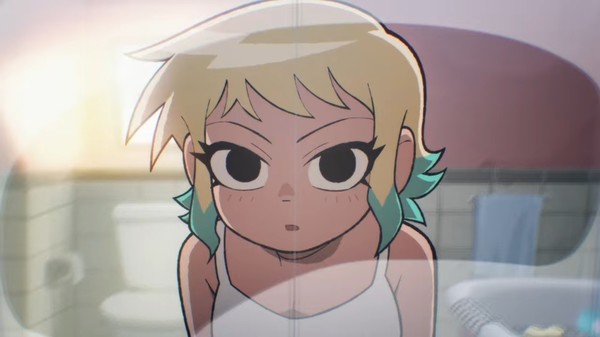
Best: Scott Pilgrim Takes Off
I knew, on a base level, that Science SARU's Scott Pilgrim series would probably be cool. I had been a fan of the original comics, and the trailers made this new anime adaptation look like it would be neat enough. Still, there was the inherent question of whether there was a modern place and audience for this series that had felt like such a key part of the nerd zeitgeist all the way back in the two-thousand-single-digits.
But then, Scott Pilgrim worked back then because of Bryan Lee O'Malley's ability to consistently surprise the audience. So of course Scott Pilgrim Takes Off would show how that had been powered up after all these years. Plenty of us made our little jokes about "Rebuild of Scott Pilgrim" in the run-up to this anime's release, so it was a punch to the face that pulverized me into a pile of coins to find out that that's actually what they did. You know me, I'm a sucker for metatext, so turning an adaptation of Scott Pilgrim into a chance to reboot, sequelize, and interrogate the original was a brilliant move, by my estimation. Takes Off does what I was doing in the lead-up to it, questioning Scott's place in the world. It does so through the bold methodology of just yeeting its title character out of it after the first episode. But beyond those ponderings, it also delivered a fleshed-out story of all the other players, evil and not-so-evil exes populating the mythical fantasy land known as "Toronto." A Scott Pilgrim anime is something I could have easily told you I would have been down for. But Lucas Lee is a multifaceted, interesting character? Julie Powers taking on a bigger role and dialing up her meanness quotient to supervillain levels? Ai Fairouz playing Ramona Flowers as the new lead character of the story? Those all turned out to be the best kinds of presents: The ones you didn't even know you wanted.
Runner-up: 16bit Sensation: Another Layer
Things being good in ways I wasn't expecting was a theme with my favorites this season. 16bit Sensation was a called shot for me; I had it as my most anticipated season series because it was an appealing-looking appreciation of the Akihabara adult VN development scene. Heck yeah, I'll give something a look if it's got an earnest love for the formative bishoujo games of yesteryear and an adorable heroine who blasts Madoka Magica tunes to comfort herself. And maybe that sort of meta-appreciation should have let me see it coming that Another Layer would wind up going full Anime-Gataris before it was over, but really, how often can anyone predict such a thing?
What's cool about Another Layer's mounting manifold sci-fi and time-travel twists is that, like its invocation of classic VNs, it's not simple set dressing. This series wants to educate and introspect about the development of this cornerstone of otaku culture, and it does so by showcasing the intersection of technology and nerd creativity. Konoha doesn't just extoll the virtues of true art like Dōkyūsei, Kanon, and Rance; she incorporates their ambition into her own drive to create. It's much the same way Another Layer uses the original 16bit Sensation manga as a jumping-off point (and hey, Kadokawa bosses, could we get that manga over here?). Its density also allows this anime to level some pretty sharp commentary at interloping elements in the artistic process seen through to the modern day. The meddlings of executives only concerned about bottom lines and their own egos, or the hollowness of "art" produced by automated AI, Another Layer has as much to forecast of the future of bishoujo as it does worship at the altar of its past.
Gunawan
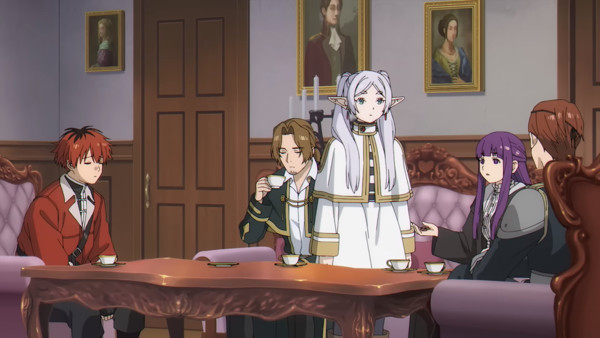
Best: Frieren: Beyond Journey's End
Fall 2023 has no shortage of great anime titles. It has been a great season of anime to end 2023 with. Frieren came up on top not just because of the hype but because everything that was presented just hit the marks. The number one aspect that immediately drew me in was the characterization. At first glance, they looked and felt typical within its confining genre but the anime spent no time to make sure we feel their charms. Its first episode being a bundle of 4 episodes was quite intimidating at first but I am glad I didn't wait any longer to watch it. Following the episodes weekly has been bliss and I would argue that watching Frieren weekly is better than binge-watching the whole series. It is quite a slow burn but the action scenes were surprisingly great although scattered a bit far in between. In my opinion, giving time to digest the story of every episode elevates the whole experience. Frieren offers a straightforward story, simple metaphors, and, so far, no pretentious hidden messaging. I will remember Frieren for a very long time and it will be in my top 10 recommendations.
Runner-up: Tearmoon Empire
An endearing personality would make any character stand out no matter what the genre is and paired with the right story could make very enjoyable entertainment. Princess Mia is a complete package of an adorable protagonist. Her plus and minus not only balanced her presence but also greatly elevated her comedic charms. To me, she is the biggest reason that I enjoy Tearmoon Empire so much and with the help of Guillotine-chan, this anime became one of my favorites of the year. Looking forward to a face-game battle between Mia Luna Tearmoon and Anya Forger.
MrAJCosplay
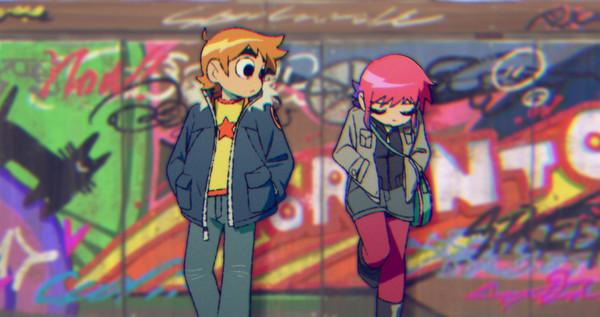
Best: Scott Pilgrim Takes Off
I never thought I'd see the day that something like this would come out. The Scott Pilgrim comic series is one of my favorite pieces of literature of all time, and the film adaptation by Edgar Wright still holds up as a unique piece of media that stands on its own to this day. When the announcement for a Scott Pilgrim anime officially came out, I was blown away. While I don't think it's necessarily perfect as a standalone piece of media, for a fan of the franchise, it's absolutely sublime. Gorgeous visuals and an addictive soundtrack are one thing, but this project just oozes passion at its very core, from the reworked screenplay that seeks to be another alternate take on the original story to all of the original actors from the live-action movie coming back to reprise their roles.
This franchise, as a whole, perfectly encapsulates the different approaches to people running away from their problems. This time, instead of Scott recognizing some of the horrible things he's done since high school, it's time for Ramona to realize the damage that she's done with her Evil Exes. Some of the people she's hurt have moved on while others found different ways of coping with their lives but that doesn't change that sometimes we hurt people on our journeys to growing up whether we intended to or not. I don't wanna spoil too much, but I love how this anime completely flipped the script while still being able to tell such a down-to-earth and relatable story. It's definitely something I'll be revisiting again soon and has only reinstalled my lot for the franchise.
Runner-up: The 100 Girlfriends Who Really, Really, Really, Really, Really Love You
This might be one of the horniest shows I've watched all year and that's really saying something. But it also might be one of the sweetest. 100 Girlfriends seeks to go where no other harem anime has gone before in both its scope and its execution. Not only are we setting the ceiling incredibly high, but 100 Girlfriends takes the bold approach of being as direct and unapologetic as possible. Yes, this is another wish-fulfillment anime about a young man having multiple romantic partners, but unlike a lot of other shows that either dance around it or tease a lot of romantic tension, this one just wears its hearts on its sleeve, leading to moments that will either leave you turned on, confused, scared, surprised or all warm and fuzzy inside. Who knows, it might make you feel all of those things at the exact same time, and I think that's a testament to its quality.
100 Girlfriends is incredibly self-aware and direct if the first ten minutes are anything to go by. However, all joking aside, I do genuinely like how communicative and invested all of the characters are. Our main lead is genuinely a nice, straightforward guy who tries to make all of his girlfriends feel equally loved. He goes above and beyond to pay attention to all of their needs and desires. In a lot of ways, this is probably the poly representation that I would love to see more of from these types of shows because of how it highlights that some people have so much love and attention to give that it only makes sense for them to have multiple people to share it with. These feelings aren't mutually exclusive either, as all of the girls are able to be distinct without overshadowing each other. This sounds like a nightmare balancing act, but so far, the story managed to walk that tightrope beautifully. Can it still be considered junk food? Sure, but it's junk food that makes me smile and warms my heart
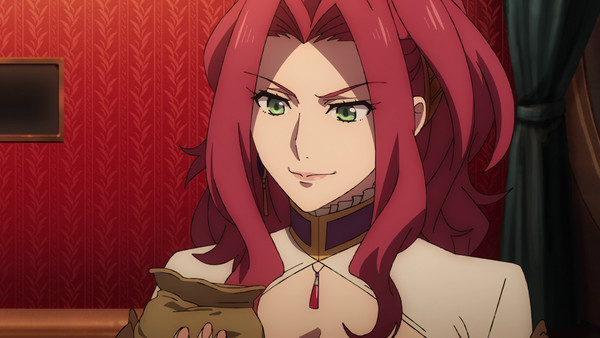
To give season three of Shield Hero a lot of credit, it is a noticeable improvement over season two. I will still go on record to say Shield Hero season two is probably one of the worst things that I was ever paid to finish. Season three had a lot of major plot points to juggle from the previous season. I have nothing but sympathy for the season's staff, no matter how good or bad it was going to be. However, it still falls short in just enough areas to prove we're never going to get back to any previous highs the series had before.
Season three didn't start off badly at all and actually seemed to address some major issues I had with the franchise since the first season, like the slave market. However, once we get into the real meat of the season, dealing with the other Cardinal Heroes, it starts to fall a bit flat. The problem with Shield Hero's third season is it continues to take the laziest and most bare-bones approach to storylines that sound legitimately interesting on paper. Naofumi going to meet all the other Cardinal Heroes, who are now in similar places as he was in season one, which sounds interesting. It's a great opportunity for him to show how far he has come and could act as another stepping stone in line with his character arc about being a strong leader. The problem is that season three doesn't do anything with that and instead either gives the responsibility of fixing the Cardinal Heroes to characters that anime-only watchers do not care about or turns the heroes into jokes.
The Spear Hero has pretty much gone clinically insane and is a straight-up pedophile. There was some setup with the Bow Hero, but it's condensed to the point where I'm not even sure what his arc was trying to communicate. Honestly, my favorite thing about this season of Shield Hero was how the Sword Hero was handled, but even that was plagued with leaning on content that was cut from the original light novels or revolving around filler mini-arcs. One of the main gimmicks was re-establishing the idea of the cursed weapons, power-ups that corrupt the users based off of their sins. Season three feels like an extension of those cursed weapons where it is a powerful marked improvement over what we had before, but it comes at so many costs that by the end, it makes me wonder if it was even worth the step up in the first place.
Steve Jones
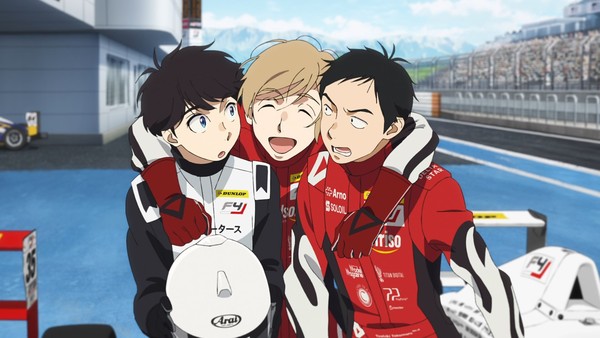
Best: Overtake!
SHORT VERSION: They call it Overtake! because it lapped every other anime airing this season.
LONG VERSION: Overtake! flew under my radar when autumn began. It wasn't even a contender for my attention, but as is often the case, I watched it as part of a “This Week in Anime” assignment. The show then zoomed and vroomed all the way to the top of my seasonal standings, and it held that position through the finish line. As you may have guessed by my choice of metaphor, the narrative focuses on car racing. Specifically, it follows a small-time F4 team trying to eke out a win despite their lack of money and resources. That in itself is a decent hook; I know next to nothing about motorsport (I didn't even know F4 was a thing), and the show, thankfully, is written for people like me. It taught me the basics, tied those lessons into the action, and left me feeling a mote more worldly than when I started. Maybe I'll have some conversational topics worth contributing the next time I catch my dad watching NASCAR.
Overtake!, however, is much more than a well-crafted sports narrative. It's also one of the most personality-rich, tightly written, and emotionally affecting dramas I've seen all year. The car boy exploits serve several rich character arcs that dig into their psyches and neuroses in consistently thoughtful ways. And it doesn't all tie into racing. The highlight of the story sees our audience insert grapple with lingering trauma from the 2011 Tohoku earthquake and the toll it took on him as both a person and an artist. It's a delicate subject handled beautifully. Overtake! tackles other heavy topics too, but it always does so with warmth and camaraderie. It has a great sense of humor and a ridiculously lovable cast, and the soft character designs and expressive animation enhance those qualities further. Even the CG racing scenes look great.
This anime is exceptional in the most literal sense of the word, and I actually wish that weren't the case. It's a small-scale original project that was evidently provided the resources to do right by its material and creators. How often do we see that nowadays? Director Ei Aoki is the big name that stands out, and he does a fantastic job here, but other frequent Studio TROYCA collaborators like character designer Masako Matsumoto, supervisor Katsuhiko Takayama, and writer Ayumi Sekine all knock it out of the park. I just wish more teams were given chances like this more frequently. Imagine a world where we could have several Overtakes per season instead of tying up a major studio with an adaptation of a wildly popular manga that already has a concurrent and successful adaptation airing. This industry doesn't have to accelerate towards a creative nadir. Overtake! proves that there's passion and power aplenty if we're willing to take a chance on the small guys.
RUNNER-UP: Scott Pilgrim Takes Off
I had neither read, watched, nor discoursed about Scott Pilgrim prior to this season. I know that's sacrilegious for a millennial anime nerd like me, and I can't really defend myself. We all, in our own ways, fall prey to our contrarian impulses. However, the prospect of a Scott Pilgrim anime drawn by the fine folks at Science SARU proved to be the kick in the butt I needed to sit down with the comic, rent the Edgar Wright movie, and see what I was missing. And I loved it all! A lot! Both the comic and film are distinctively quirky, irreverent, fun, stylish, indulgent, and all sorts of other adjectives that millions of people have already used to describe the series. I'm glad to have these characters rotating in my cerebrum now, and I could deem this anime worthwhile purely on that merit.
Scott Pilgrim Takes Off, however, needs no consolation prize. In a media landscape inundated with reboots and retreads presented like bowls of slop for our childhood ids to feed upon, Takes Off serves its platter of nostalgia with gumption and ambition. What starts as a straightforward adaptation quickly morphs into a new story in constant conflagrant conversation with the original comic. Ramona is the protagonist! Scott is M.I.A. a la Twin Peaks: The Return! Julie swears even more! It's stuffed full of the metatextual jokes and self-awareness you'd expect—Bryan Lee O'Malley hasn't been living under a rock. for the past two decades—but what I love the most is how it treats its characters. While they're true to their old incarnations, the new Scott-less situation gives many of them space to grow and develop in fun and frequently poignant ways. Even Scott benefits from this shakeup. I may not have been chewing on this material since 2004, but I found a lot of my thoughts echoed or addressed here.
It's also just a great anime that captures the style and tone of the comics well. The blend of a cartoony aesthetic with photorealistic effects (blur, depth of field, etc.) is suitably bold, even if it does take a little getting used to. The action animation is kinetic (featuring the best skateboarding battle since Sk8 the Infinity). The character acting meshes with the comedy. The soundtrack is even better than the film's own.
And I highly recommend the Japanese dub. It's cool that they reunited the movie's cast for this, but Hollywood actors have nothing over the talents of Fairouz Ai, Yū Kobayashi, Kana Hanazawa, Aoi Koga, and Fumihiko Tachiki, to name a few. Considering how indebted Scott Pilgrim was to manga and anime, Takes Offfeels like a long-anticipated response to a love letter. It's a positive response, penned on a torn sheet of notebook paper, but the content of the message is secondary to the menagerie of doodles found in the margins.

I recognize the irony of me, a non-motorhead, highlighting two different motorsport anime in this feature. That's just how it shook out, and I will earnestly cop to being out of my depth in this subject. But whereas Overtake! won me over with its likable cast and earnest storytelling, MF Ghost alienated me with its paper-thin characters, shoddy presentation, and almost nonexistent story. I'm no Initial D aficionado, so I'm not the target audience for this follow-up, and I hope all you drift kings, race queens, and other speedway monarchs got more out of this than I did. But I think even a direct comparison with Initial D does MF Ghost no favors. Yes, it brings the Eurobeat back, and that's absolutely the best creative decision this sequel makes. But in all other respects—setting, character, stakes, direction, storyboarding—the classic Initial D anime runs laps around this one. The CG car models may be nicer to look at now, but like a Toyota AE86, it all comes down to who's handling them.
Lynzee Loveridge
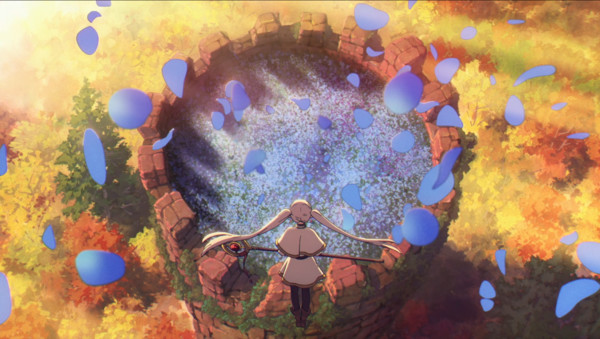
Best: Frieren: Beyond Journey's End
It took this one a while to cement its status as my definitive best of the season. It came with stunning endorsements from other members of the editorial team, but I'm a skeptic and contrarian by nature. I am, perhaps to my own detriment, immune to hype. I tuned in to Frieren's extra-long premiere, and while I can't dispute that it is not just visually sumptuous but consistently so, I was left a bit cold by our stoic lead. Her breakdown at Himmel's funeral stirred me a bit, but the first handful of episodes were defined by a lot of matter-of-fact characters interacting with one another. Fern isn't really a foil to Frieren, outside of keeping her aware of the disparate differences between their concept of time. However, I slowly became engaged in their journey, despite the fact that it was mostly various discussions at different markets.
It was the demons that got me. There's a worthy discussion about the implications of their existence as a narrative choice, but I was a quick fan of their conceit. There's something perfectly creepy about a human-appearing species preying on our empathy. The corruption of a child's cry for her mother is so devious, I loved it. The cast began to grow on me, too, once Stark was on board to shake some of the frumpiness out of their interactions. I found myself warming up to Fern, and she and Stark began fumbling about one another's feelings. The small moments became sweeter, and the story's emotional investment started to pay off.
I haven't read the manga, so I don't know where Frieren's journey will ultimately lead. I'm hoping for some kind of deeper acknowledgment about her past companions, and Himmel in particular, but until then, I'm along for the ride.
RUNNER-UP: Migi & Dali
Migi & Dali suffers from two tragedies in particular: more people aren't watching it, and it reaffirms Nami Sano as a creative talent taken from the world too soon. I can't articulate how upset I am that we won't get to read more of her stories. If you missed this anime, it's understandable. There wasn't much word of mouth beforehand, and the official synopsis kept a tight lid on the most general aspects of the plot. Anime-only viewers were going in blind except for those familiar with Sano and Haven't You Heard? I'm Sakamoto (best anime comedy, go watch it).
What begins as a creepy comedy about a pair of twins pulling a fast one on their adoptive parents while trying to sleuth out who killed their mom turns into some next-level horror with tinges of The People Under the Stairs and The Hand That Rocks the Cradle. Tonally, there aren't many contemporary comparisons I can make in the anime space. There are other horror comedies, especially in live-action films and TV, but far fewer than Migi & Dali. It's sort of like Another, and while readers might want to throw out The Lost Village, I maintain that a horror comedy has to actually be funny.
Migi & Dali is unlike any anime I've watched in a very long time. It's silly, its characters have all the intelligence you'd expect from sequestered 12-year-olds, their best friend masquerades as a bird, and there are murders. Please check it out so we can get more weird shit. It's my favorite kind.
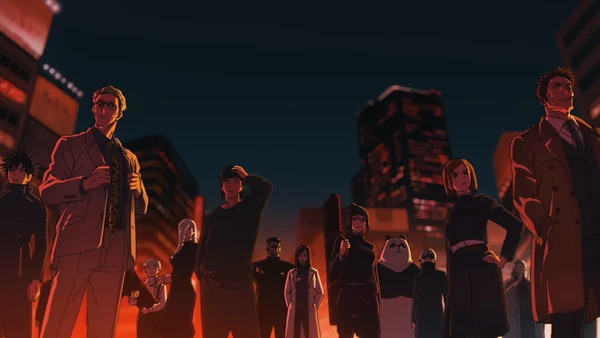
There were series this season that looked worse, and very likely more that were an abject waste of time. Jujutsu Kaisen's Shibuya Incident Arc is my worst pick for burning through my goodwill for the series as a whole, and that takes a certain expertise. If you read my above picks for "best," you already know that this isn't a case of overblown expectations. I did not have any in particular; I've seen a lot of enthusiastic yelling about a show before that didn't do anything for me.
But I liked JJK Season One. I liked it a lot, it was one of the funniest shōnen series I'd watched in recent memory. I became quite attached to the core and expanded cast. The juxtaposition between goofy high schoolers and absolutely terrifying monsters hit its stride in the first season, followed by an emotionally crushing prequel arc focusing on Gojo and Geto.
I have to give it credit, the Shibuya Incident Arc made the tourist-friendly district into some kind of hell. I've shared my thoughts on this at length during the ANN After Show podcast, but this protracted arc is filled to the brim with fights starring one-off villains or frequent cutaways, sapping the momentum out of its fisticuffs. Mahito's antics are about as tiresome as every new iteration of the Joker I've had to stomach in the last five years.
All of this, on top of the fact that I actively feel bad watching this after the animators began speaking out about their workflow at MAPPA and alleged methods employed to silence them. Feels bad, man!
Disclosure: Bandai Namco Filmworks Inc. (Sunrise) is a non-controlling, minority shareholder in Anime News Network Inc.
Disclosure: Kadokawa World Entertainment (KWE), a wholly owned subsidiary of Kadokawa Corporation, is the majority owner of Anime News Network, LLC. One or more of the companies mentioned in this article are part of the Kadokawa Group of Companies.
discuss this in the forum (86 posts) |
this article has been modified since it was originally posted; see change history